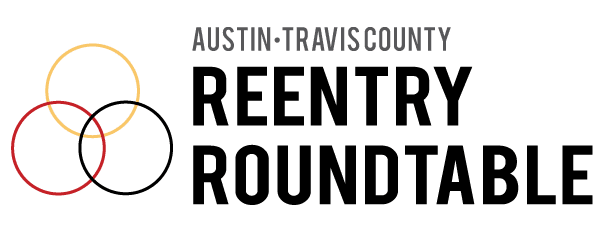by Amanda Cassidy-Trejo, Reentry Advocacy Fellow
This past year has been a period of a lot of growth for me both professionally and personally. I was able to participate in many opportunities that will help shape my future and add new dreams to my career goals that I did not know existed before.
In the first quarter of the year, our main focus was to tackle the topic of reentry and diversion issues for women in the Travis County area. As Travis County Commissioners Court explored alternatives to incarceration for women, the Roundtable partnered with them to provide feedback from a diverse group of women who have lived experience in reentry and diversion. I was honored to co-facilitate these focus groups and walked away recognizing that many of the same issues I experienced in reentry have continued to exist. I also feel a sense of hope because I see the work being done to support these women and heard them say they gained the most help from mutual aid support: “First time I ever started interacting with people who are clean and sober; or other people who had a dual diagnosis like I did. Being around other people who took medicine and were doing well was useful.”
In the second quarter of the year, I headed off to Washington D.C. with the Hogg Policy Academy folks, lovingly referred to as the ”Hogg Pound.” Throughout the week, we heard from agencies who played various roles in mental health policy. We met with the Department of Justice which enforces policy legally, the Brookings Institute which supports policy with research and data, and the National Association of State Mental Health Program Directors which provides a convening space for officials and stakeholders to work together on policy. We also spent a whole day at Substance Abuse and Mental Health Services Administration (SAMHSA) and learned about the robust work the agency is doing to advocate, implement and educate on mental health policy and programming. Personally, it was most exciting for me to learn about the new Office of Recovery at SAMHSA. Their mission is to evaluate and initiate policy, programs, and services with a recovery focus and ensure the voices of individuals in recovery are represented. Once I learned about this new office, it immediately went on my career goals plan.
Later in the year, the Roundtable began the work of creating our next five-year strategic plan. This was my second time getting to take part in a strategic planning process. It was definitely arduous at times but well worth it, in the end, to watch it go into the implementation phase and get to see the planning come to life. I am most excited about getting to envision what Reentry Advocacy Project (RAP) could be and guiding the Roundtable to become more inclusive of those like myself who have experienced injustice systems. Allowing us to not only be in the room but for our voices to be heard and valued was inspiring. I have learned how to become a solid facilitator as a direct result of working with Darwin and the WNA team. I have facilitated monthly RAP meetings throughout the two-year fellowship, highlighting guest speakers with lived experience who work in a variety of areas within the community. This accomplishment led me to plan the first in-person RAP event since 2020–RAP Meets– which brought together community members for a day of fellowship and learning with RAP, Grassroots Leadership, and Texas Advocates for Justice.
Over the past year, I have been afforded the opportunity to dive into some learning opportunities to help me beyond my fellowship. I embarked on the Transformational Leadership training with Doug Smith & Michael King where I learned how to nurture and grow the leader within myself. I also completed training to become a Justice-Involved, ReEntry Peer Specialist with Dr Sandra Smith at Via Hope. This allowed me to not only grow my own mutual aid support network but to become a stronger resource for those in the community as well. What I am working on now that I will complete at the end of my fellowship is the Certification for NonProfit Leadership & Management with NonProfit Austin at ACC. In this course, I am learning how to operate a NonProfit organization from dream to day-to-day operations with some of the leading experts in the NonProfit world nationwide.
If you had asked me two years ago what I wanted to be doing now, I never would have imagined that this would be the life I would get to have. Not only has the Roundtable played an intricate role in my life professionally but you all have also gotten to be a part of me becoming a homeowner, a wife, and a full-time mom of 5 kids. You all have helped support me in my long-term recovery by offering me sustainable career options and resources to support me in becoming the best version of myself. The most profound thing of them all has been getting to connect with the community of leaders who have been down a similar path and the people who are our true allies. As we wrap up this calendar year and I head toward the end of my fellowship it is bittersweet and I am forever grateful that I have been given this opportunity.
